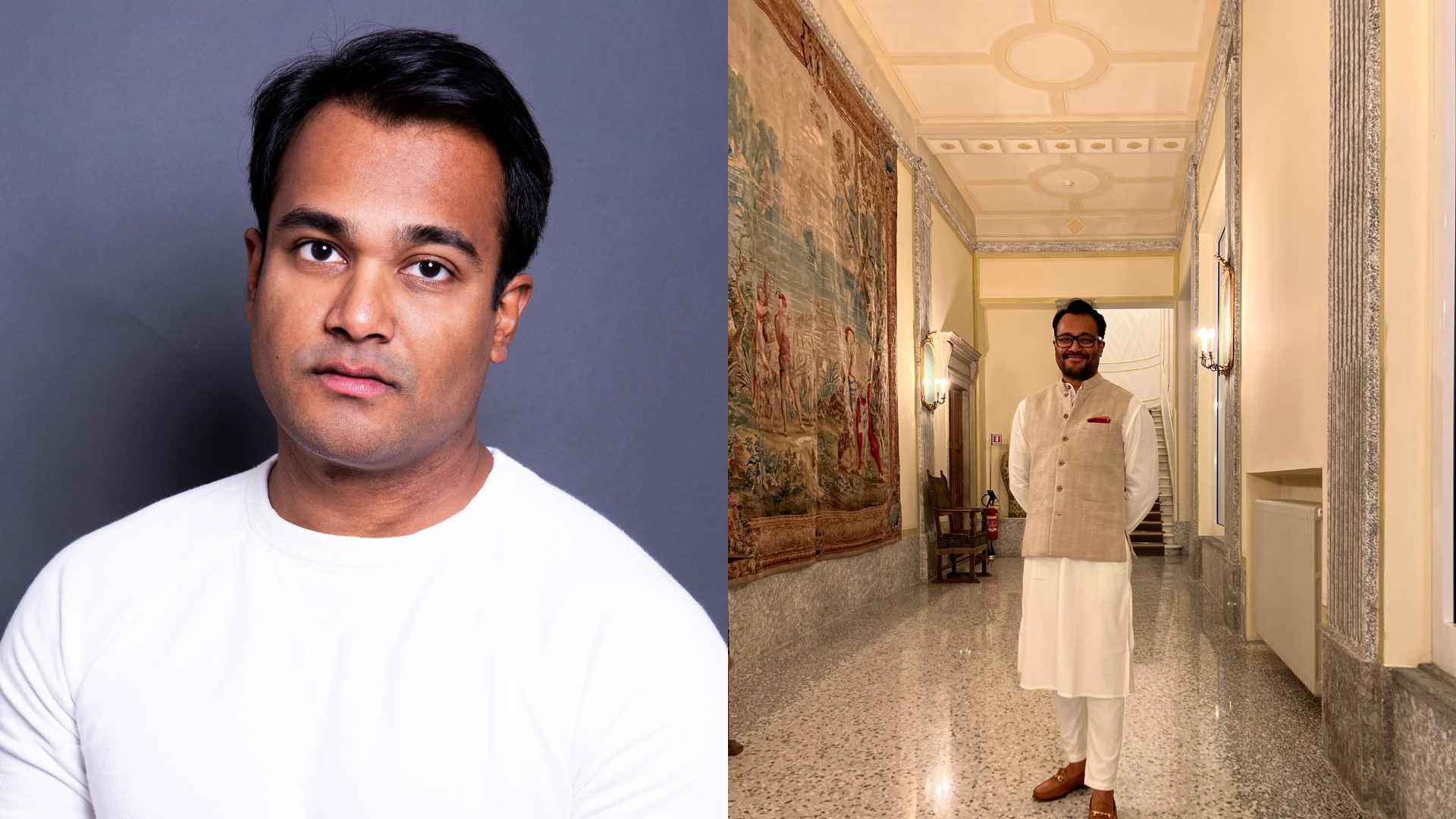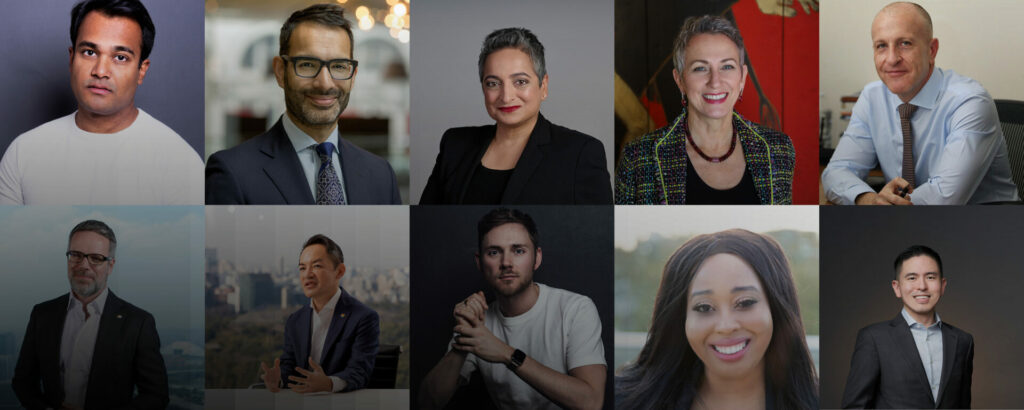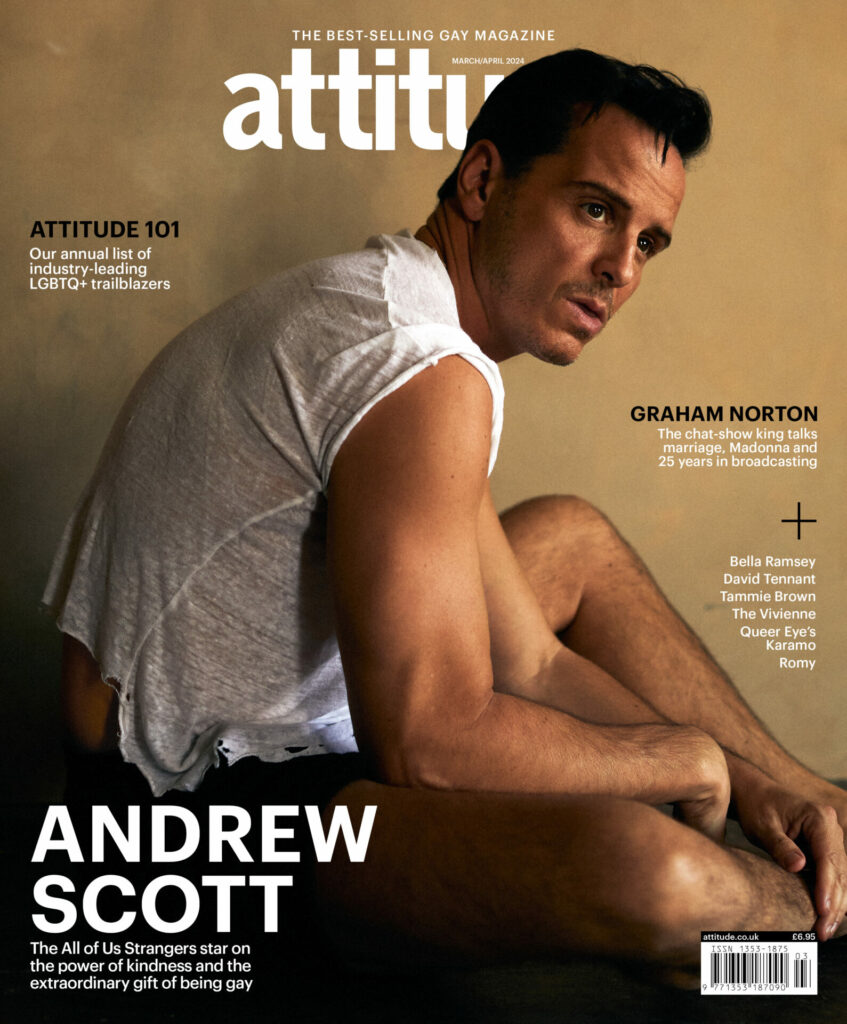Lawyer Krishna Omkar on reclaiming India’s ‘inherent’ identity in landmark same-sex decriminalisation case
Exclusive: As a top lawyer who helped bring about the decriminalisation of homosexuality in his native India, Krishna Omkar is at the forefront of the battle for LGBTQ+ equality
By Dale Fox

“It was lonely,” recalls Krishna Omkar – leader of the financial & legal list of Attitude 101, empowered by Bentley – of growing up gay in Delhi, India. He grappled privately with his identity, feeling certain he was the only one enduring such inner turmoil.
“The Victorian culture created there in the 1800s eroded a lot of the multiplicity and acceptance inherent in Indian culture,” Omkar comments, shedding light on the impact of colonial-era laws on India’s social norms.
Attending the University of Oxford years later marked a significant transition, but it was not without challenges. “I walked into this room, and I was pretty much the only non-white person there,” says Omkar as he describes his first experience at a freshers’ week event of the Oxford LGB Society (as it was then known), highlighting the complexities of race in addition to sexuality.
“On the one hand, I thought I would finally be in a place where I wasn’t a minority because of my orientation, but actually I was again a minority because of my race and my ethnicity and my nationality.”
Today, Omkar is recognised as one of Britain’s most influential Indian-origin leaders in fields spanning law and business. His journey from an out-of-place student to a globe-trotting lawyer and a staunch advocate for LGBTQ+ rights illustrates a trajectory of profound personal and professional growth.
“When we were growing up, we never actually talked about our queer identity. But somehow, we had a bond”
His pro bono involvement in the 2018 Indian Supreme Court case decriminalising same-sex relations stands out among his many achievements. Omkar elaborates, “My work in this case involved collaborating with lead counsel and producing a brief referred to in the Supreme Court’s judgement,” highlighting his pivotal role in challenging Section 377, a colonial-era law.
But what made working on this case extra special to Omkar was a personal connection to it outside of his own sexuality. “One of the petitioners in the case is a school friend of mine. We’ve known each other since we were four years old,” he explains. “It was weird because when we were growing up, we never actually talked about our queer identity. But somehow, we had a bond. So, to me, [this case] was particularly emotional because it was an entire lifetime’s journey of having lived this experience.”
Working on the case also allowed Omkar to overcome prejudices of his own, after he “assumed certain people wouldn’t want to talk to me about the issue” but “they were open to their minds being changed and they were open to discussion — it was a liberating experience.”
“We were trying to reclaim an identity and a celebration of diversity and inclusion that is actually inherently Indian”
He continues, “One of the most powerful aspects of it was being able to articulate and situate queer identities within the context of Indian culture and talk about the fact that what we were trying to remove was a colonial-era law that was not actually inherently or culturally Indian. We were trying to reclaim an identity and a celebration of diversity and inclusion that is actually inherently Indian.”
Meanwhile, Omkar is acutely aware of the challenges in advocating for broader acceptance in India, a nation of immense diversity and population. “Change takes time… but it’s a much more important change because it’s more sustainable and organic,” he asserts, reflecting on the gradual process of societal transformation. He emphasises the importance of dialogue, especially with the younger generation. “Having that conversation with people as they grow and mature is incredibly important,” he notes.
Beyond India, Omkar’s advocacy has had a global impact. As a co-convenor at the 2019 UN consultation on LGBTQ+ rights, he played a significant role in shaping international discussions. “The real challenge is: ‘How do we effectively bank the progress that we have made?’” Omkar states, as he considers the ongoing struggle for LGBTQ+ rights worldwide.
“I don’t think we can make progress unless we have allies”
Building alliances is central to Omkar’s strategy around this. “I don’t think we can make progress unless we have allies,” he emphasises, underlining the need for cross-sectoral and community solidarity in the fight for equality.
His unique position, straddling British and Indian cultures professionally and personally, has brought a distinctive perspective to his work. Reflecting on being named one of the 75 UK-India Achievers honoured on the anniversary of India’s 75th year of independence in 2022, Omkar says, “I was deeply emotional, particularly because I’ve lived in two cultures.”
Omkar’s ascent as an openly gay lawyer, characterised by his strong work ethic and expertise, has opened doors for greater diversity in traditionally exclusive sectors. He sheds light on the ongoing societal shifts needed alongside legal victories: “You have a daily coming out. You have a daily filtering in your head of what you can say and what you can’t say,” he explains, pointing out the everyday realities faced by LGBTQ+ individuals.
“There’s much work to be done, but I’m heartened by the progress we’ve made and the conversations we’re having”
Yet, there’s a thread of hope and incremental progress in Omkar’s narrative. He recounts, “I had on Instagram two people send me a message, one of whom said, ‘I’m sorry I used to bully you at school, and I didn’t know better at the time,’ and another thanking me for helping others come out.” These messages, indicative of changing attitudes, point to a gradual shift towards a more inclusive society.
Omkar’s aim to elevate LGBTQ+ voices in every sphere reflects his commitment to advocacy and equality. “Lasting social change relies on continued advocacy,” he affirms, signifying his dedication to the cause. Looking to the future, Omkar remains optimistic and focused, saying: “There’s much work to be done, but I’m heartened by the progress we’ve made and the conversations we’re having.” As the accomplished lawyer looks ahead, his journey and achievements stand as a demonstration of the profound impact one individual can have in the fight for equality and justice.
Attitude 101, empowered by Bentley is our list of the year’s 101 most influential LGBTQ+ people.

The 10 categories, each featuring 10 individuals, are Media & Broadcast, Film, TV, and Music supported by LA Tourism, Science, Technology, Engineering, & Mathematics (STEM), Third Sector & Community, Financial & Legal, Fashion, Art & Design, Sport, Travel, Business, and The Future supported by Clifford Chance.
The full financial & legal list of Attitude 101, empowered by Bentley

Krishna Omkar – Lawyer
Dame Inga Beale – Former CEO, Lloyd’s of London
Frank Chen – Managing Director, Goldman Sachs, Taiwan
Amin Kassam – Deputy General Counsel, Bloomberg L.P.
Moriaki Kida – Chairperson and CEO, EY Japan
Matt Measor – Senior Risk & Control Manager, Monzo Bank
Jacqui Rhule-Dagher – Lawyer, Hogan Lovells
Darren Rickards – Managing Director, Bank of America
Shamina Singh – President, Mastercard Center for Inclusive Growth
Olfert de Wit – Chief Operating Officer, HSBC Continental Europe
This feature appears in issue 357 of Attitude magazine, available to order online here, and alongside 15 years of back issues on the free Attitude app.

